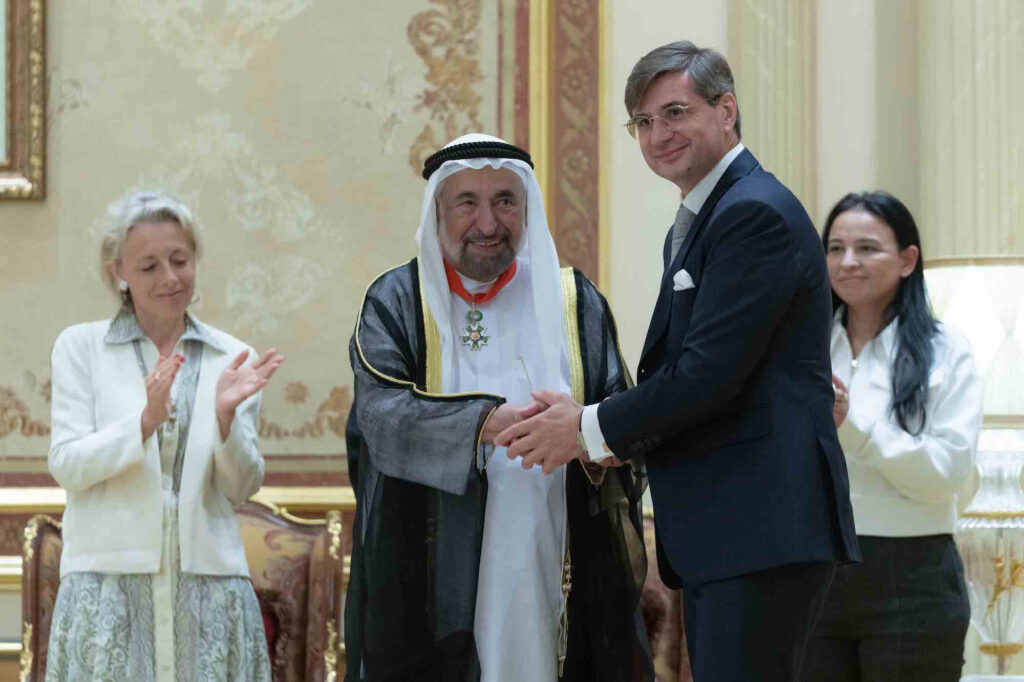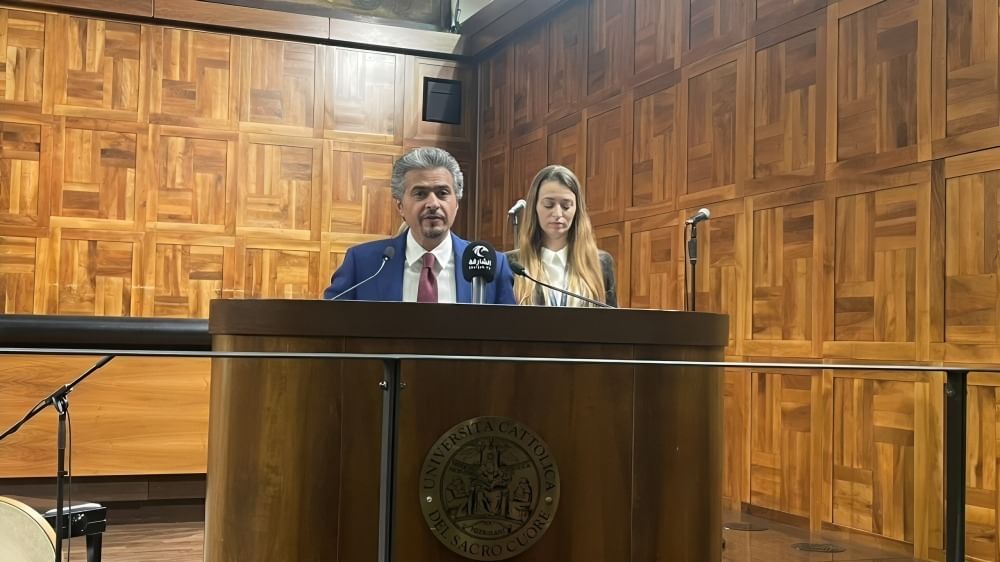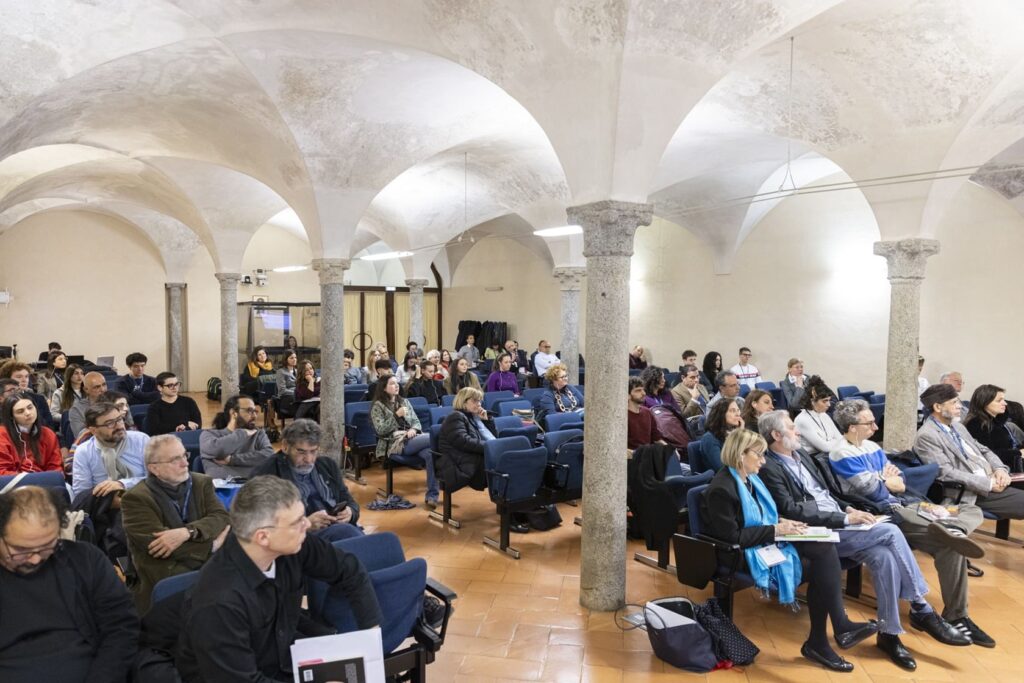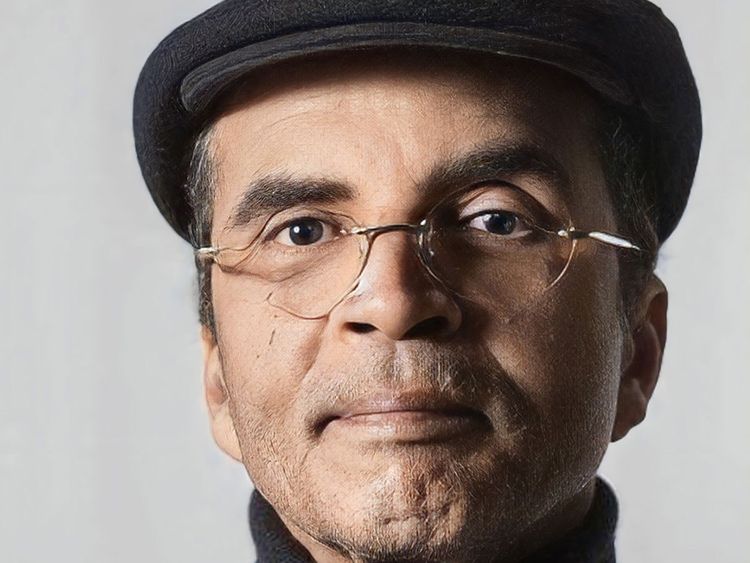Sharjah Ruler collected 8,000 rare titles documenting French cultural history.
His Highness Sheikh Dr. Sultan bin Muhammad Al Qasimi, Member of the UAE Supreme Council and Ruler of Sharjah, is a leading Arab scholar and historian who has made contributions to documenting France’s cultural history from an Arab perspective.
The historian has been recently conferred the title of The Legion of Honour, with the rank of Commander – one of the highest national honours in the Republic of France in recognition of his efforts to strengthen cooperation relations between the French Republic and Sharjah in a variety of fields, particularly culture. The honour was granted to the Sharjah Ruler by His Excellency Emmanuel Macron, the French President, and presented by Nicolas Niemtchinow, Ambassador of the French Republic to the UAE.
His Highness is currently developing the chapters of a comprehensive work, the first of which is titled ‘The Century of Lights.’ Set in the 18th century – the chapter focuses on the era that established the foundations of Western society and examines the pivotal role played by Denis Diderot, the founder of the Encyclopédie, in collaboration with D’Alembert, as well as the contributions of liberal philosophers of that century such as Jean-Jacques Rousseau and Voltaire.
The Arab historian navigates the remainder of the 18th and 19th centuries in the following two chapters, before penning the fourth chapter titled, ‘Controversial Issues on Globalisation and Cultural Exception’ detailing everything that had happened in relation to globalisation and France’s role in it.
“France, at the helm of the European Union, began vigorously defending the idea of cultural exception; it has prevailed. From my end, I will publish this book in Arabic to introduce all Arabs to French culture,” His Highness said.
“In 2003, the French Republic conferred the ‘Order of the French Republic for Arts and Letters,’ with the rank of ‘Knight Commander’ upon me. I saw this honour as a mandate to continue cultural giving, and I discussed the Republic of France’s pioneering role in intellectual enlightenment and civilised communication, as well as its contributions to the cultural field, translation, and literature, and the spread of the concepts of freedom and justice,” His Highness added.
From that day forward, the Ruler of Sharjah initiated the acquisition of available written records that document the cultural history of the French Republic, using the titles of books in the Egyptian Scientific Institute in Cairo. “I collected nearly 8,000 rare titles in French and decided to establish a scientific institute for those books in Sharjah, similar to the French and Egyptian Institute,” His Highness added, saying he donated his entire collection to the institute in Egypt after it was turned to ashes by a violent fire in December 2011.
source/content: businesswire.com / AETOSWire (headline edited)
_____________

His Highness Ruler of Sharjah while receiving the title of The Legion of Honour, with the rank of Commander (Photo: AETOSWire)
______________________________________________
SHARJAH, UNITED ARAB EMIRATES (U.A.E)


